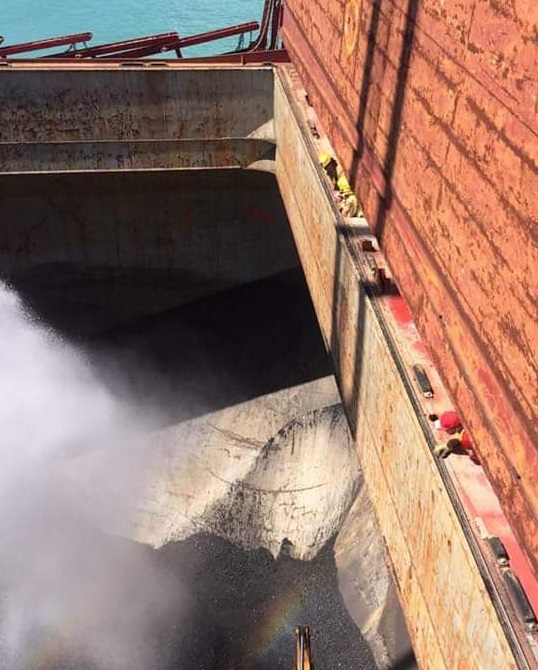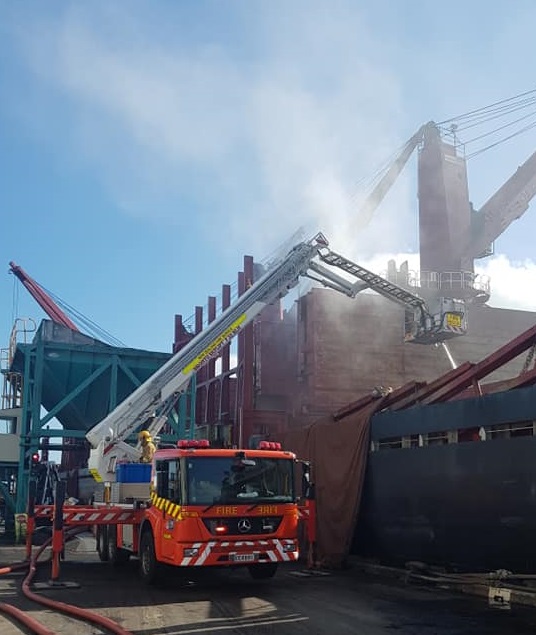Auckland Fire Brigade Contains Smoldering Coal Cargo
Auckland's fire brigade spent six hours dealing with a smoldering cargo of coal on the bulk carrier MV Liangchow in New Zealand on Monday.
Six crews attended Freyberg wharf to stop the spread of fire and then cool 2,000 tons of coal as it was unloaded ready for transport offsite. There were no injuries, and a Ports of Auckland spokeswoman told local media that the incident didn't stop work at the port.
The 39,700dwt vessel is operated by Swire Shipping.

Coal self-heating is affected by the reactivity of the particular coal due to its source and other factors such as the way it was mined and stored and how quickly it was loaded after mining. The International Maritime Solid Bulk Cargoes Code (IMSBC Code) limits the heating of fuel tanks adjacent to cargo holds, and coal should not be loaded when the temperature of the cargo is higher than 55°C.

that matters most
Get the latest maritime news delivered to your inbox daily.
Marine insurer Skuld states that this limit recognizes that the rate of self-heating reactions approximately doubles for every 10-degree rise in temperature. Thus once coal gets to about 55°C, the rate of the self-heating reactions means that the coal could heat relatively quickly to the point of self-ignition. Generally if the cargo temperature is below 55°C there will be sufficient time to load the cargo, monitor it and to restrict oxygen such that the self-heating reactions are stifled and the coal cannot attain the high temperature required for ignition.

